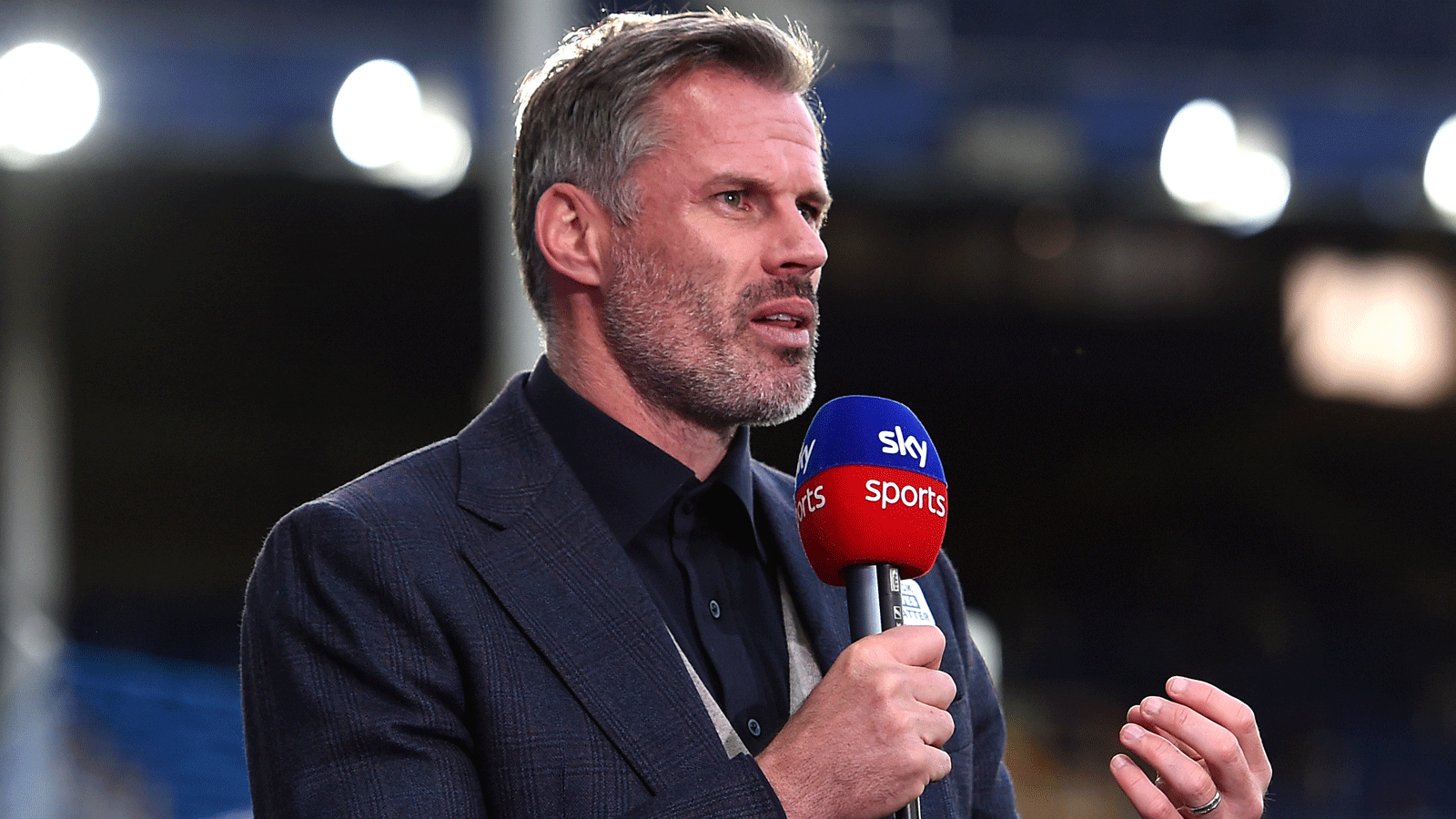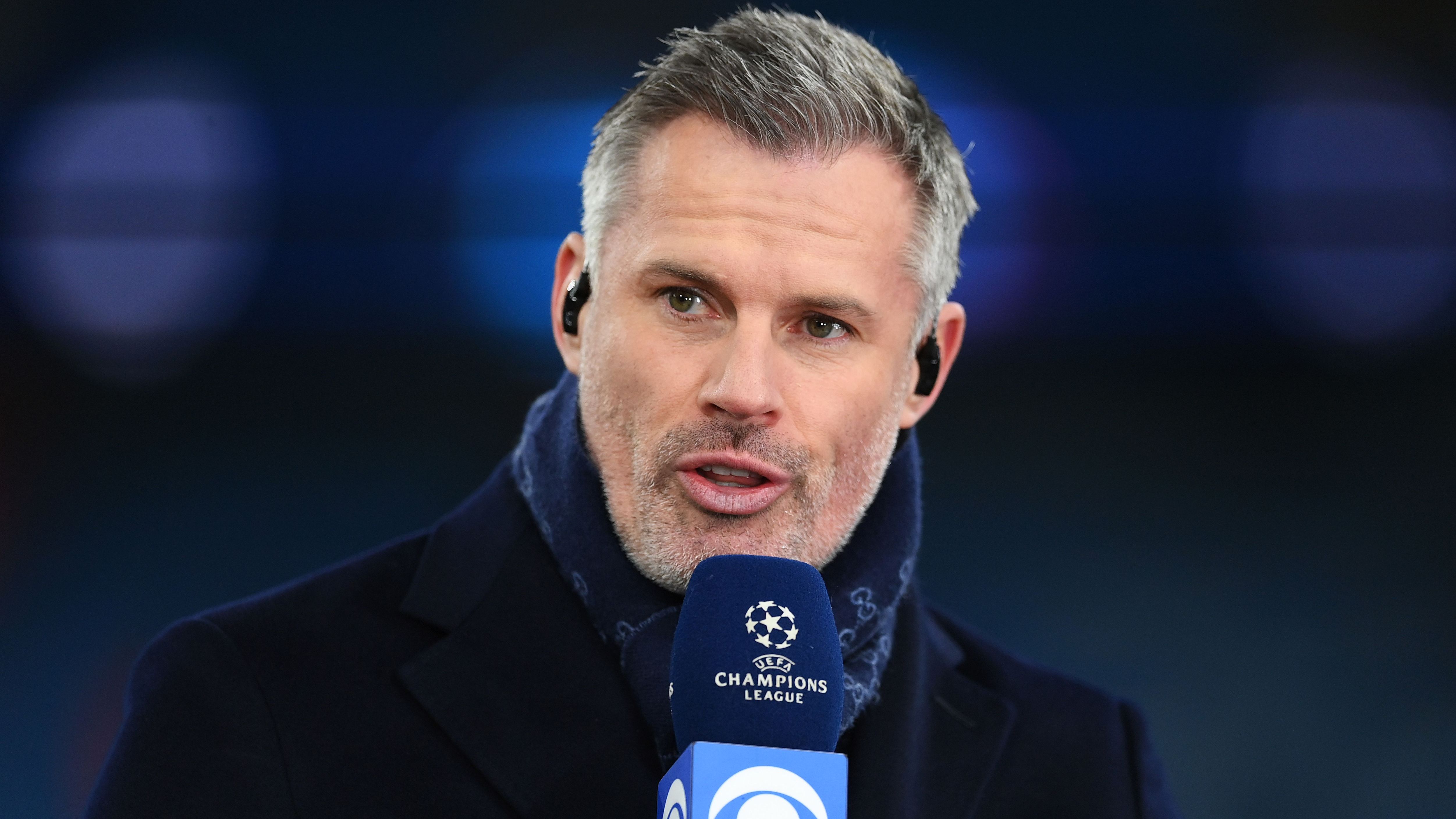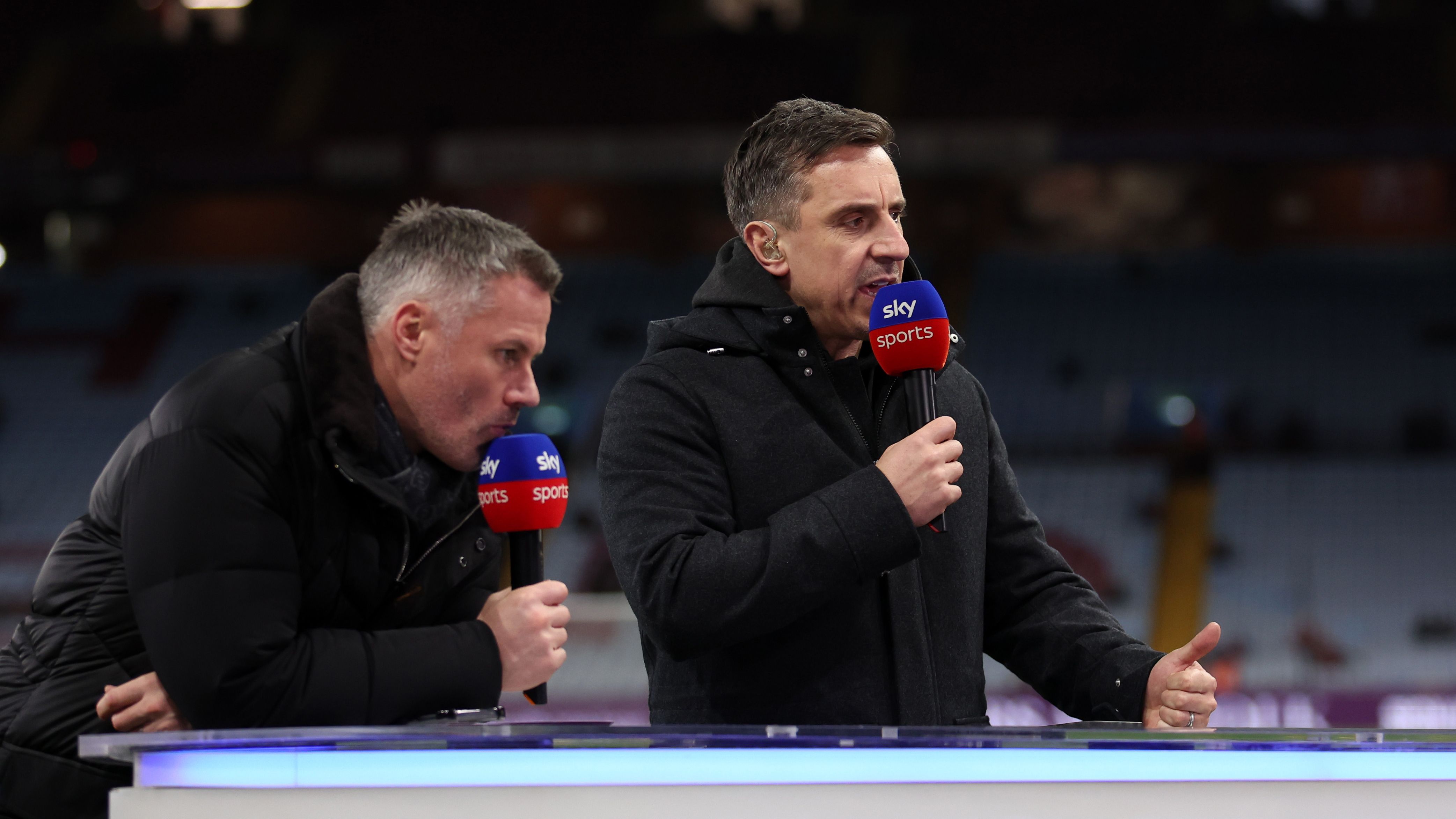


Unlocking Jamie Carragher’s True Strength in Punditry Over Management
In the world of football, Jamie Carragher‘s shift from the pitch to the commentary box has sparked intrigue, highlighting how his intense drive makes him a standout pundit rather than a potential manager. After stepping away from professional play following the 2012-13 campaign, this Liverpool icon surprised many by bypassing the typical route into coaching and instead building a prominent career in media analysis. Today, he stands as a key figure at outlets like Sky Sports and CBS, delivering sharp insights during major Premier League and Champions League matches, proving his value lies in thoughtful commentary.
Why Carragher’s Career Choice Resonates in Football Circles
Many in the sport have pondered the reasons behind Carragher’s avoidance of the managerial spotlight, given his evident skills in leadership and strategy on the field. Yet, according to his ex-Liverpool colleague, the decision to remain on the sidelines as an analyst was spot-on, aligning perfectly with his innate talents and avoiding potential pitfalls in a high-pressure coaching environment.
Smicer’s Perspective on Carragher’s Fiery Temperament
Smicer, who shared the pitch with Carragher, argues that his colleague’s passionate demeanor could have led to disruptions if he had pursued a coaching role. In a discussion with Boyle Sports, known for their Premier League betting options, Smicer shared his views: “Jamie Carragher’s path was a smart one. His position suits him brilliantly-he grasps the game deeply and offers solid analysis. Often, I find myself nodding along, convinced he’s more effective in front of the camera than he ever would be leading a team.”
Recalling Carragher’s On-Field Intensity
Smicer went on to elaborate on Carragher’s behavior during games, noting how his high energy might translate poorly to management. “As a manager, he’d be overwhelmingly animated during practices. I can still picture him as that defensive player behind me, constantly vocal, whether I excelled or faltered. It’s clear he’d bring that same fervor to coaching, which might overwhelm. Punditry, though, fits him like a glove.”
Celebrating Carragher’s Success in Media
Further praising Carragher’s contributions, Smicer remarked on his professional demeanor: “I’m a fan of how he handles his role at Sky-it’s top-notch, and he’s a solid individual.” This endorsement underscores the rewards of Carragher’s media focus, where his expertise shines without the complications of team leadership.
Contrasting Paths with Other Football Legends
Carragher’s commitment to punditry has yielded impressive results, in stark contrast to figures like Gary Neville from Manchester United. Neville’s brief and turbulent foray into management, notably his challenging 28-match tenure at Valencia in La Liga, serves as a parallel example of how the transition doesn’t always succeed, reinforcing why Carragher’s choice has been so advantageous.
Who is Jamie Carragher?
Jamie Carragher, a former professional footballer and Liverpool legend, has transitioned into a prominent figure in sports media. Known for his unwavering passion for the game, Carragher played over 700 matches for Liverpool, earning a reputation as a tenacious defender and team leader. His career highlights include winning the UEFA Champions League in 2005 and being a key part of England’s national team. Today, he’s best recognized as a football pundit on networks like Sky Sports, where his insightful analysis and candid opinions keep viewers engaged. Keywords like “Jamie Carragher pundit” and “emotional football analysis” often surface in discussions about his post-playing career, highlighting his natural fit for broadcasting over traditional management roles.
Reasons Jamie Carragher Was Seen as Too Emotional for Football Management
Carragher’s playing style was defined by raw emotion and intense competitiveness, traits that made him a fan favorite but raised questions about his suitability for management. Football management demands a level-headed approach, with coaches needing to make calculated decisions under pressure. According to various analyses from sports commentators, Carragher’s on-pitch outbursts and passionate reactions could translate into impulsive choices in a managerial setting. For instance, his public disagreements with referees and opponents during his career suggested a temperament that might not align with the diplomatic skills required to handle player egos, boardroom politics, and media scrutiny.
This perception was amplified after Carragher briefly explored coaching opportunities. In interviews, he has admitted that his emotional investment in the game might lead to conflicts, as seen in his vocal criticism of team performances even as a pundit. Experts in sports psychology often discuss how high-emotion players like Carragher struggle with the detachment needed for management, making phrases like “too emotional for management” common in SEO-optimized searches related to his career path.
Case Studies Highlighting Emotional Challenges in Management
Looking at similar cases, Carragher’s situation mirrors that of other former players, such as Graeme Souness, who faced hurdles in management due to their fiery natures. In one notable case, Souness’s tenure at various clubs was marked by heated confrontations, underscoring how emotional intensity can hinder long-term success. For Carragher, hypothetical scenarios discussed in football forums point to potential issues like player conflicts or poor handling of losses, which could derail a managerial career. These case studies emphasize why Carragher wisely pivoted away from the sidelines, focusing instead on roles that leverage his strengths.
Why Jamie Carragher Excels in Punditry
On the flip side, Carragher’s emotional depth is a huge asset in punditry, where authenticity and passion drive viewer engagement. As a pundit, he brings unparalleled expertise, drawing from his extensive experience to deliver razor-sharp critiques and predictions. His ability to break down tactics in real-time, using keywords like “Jamie Carragher analysis” in live broadcasts, has made him a go-to voice for football fans searching for honest commentary.
Carragher’s style stands out for its relatability; he doesn’t shy away from sharing personal anecdotes, making his segments feel like a conversation with a knowledgeable friend. This has boosted his popularity, with searches for “best football pundits” often featuring him prominently due to his blend of emotion and insight.
Benefits of Carragher’s Punditry Approach
One of the key benefits of Carragher’s punditry is how it educates viewers on the nuances of the game. For aspiring coaches or fans, his breakdowns offer practical value, such as tips on defensive strategies or reading opponents-skills he honed during his playing days. Benefits include enhanced viewer retention for broadcasters and a more informed audience, as Carragher’s emotional delivery keeps discussions lively and memorable.
Practical Tips from Carragher’s Experience
From Carragher’s career, readers can glean practical tips for their own pursuits in sports media or personal development. For example:
- Embrace your strengths: If you’re passionate about a subject, channel that energy into roles like punditry rather than forcing a fit in management.
- Develop emotional intelligence: Carragher’s success shows the importance of self-awareness-recognize when your emotions fuel creativity versus when they cause conflict.
- Build on expertise: Use firsthand experiences, like Carragher’s Liverpool tenure, to provide authentic advice, making your content more SEO-friendly and shareable.
- Engage audiences: Incorporate storytelling in your work, as Carragher does, to make complex topics accessible and keep readers coming back for more.
These tips not only highlight Carragher’s adaptability but also serve as a blueprint for others in similar transitions.
First-Hand Experiences Shaping His Punditry Role
Carragher has shared first-hand experiences that illustrate his growth in media. For instance, he recounted on podcasts how his emotional reactions during games translated into compelling TV moments, like his heated debates with fellow pundits Gary Neville. These stories add depth to his narrative, showing how personal challenges, such as dealing with retirement, led him to thrive in broadcasting. By drawing from these experiences, Carragher reinforces why he’s ideally suited for punditry, offering readers relatable insights into career evolution in sports.
This evolution has solidified his status, with ongoing discussions around “Jamie Carragher suited for punditry” reflecting his lasting impact on football media.









